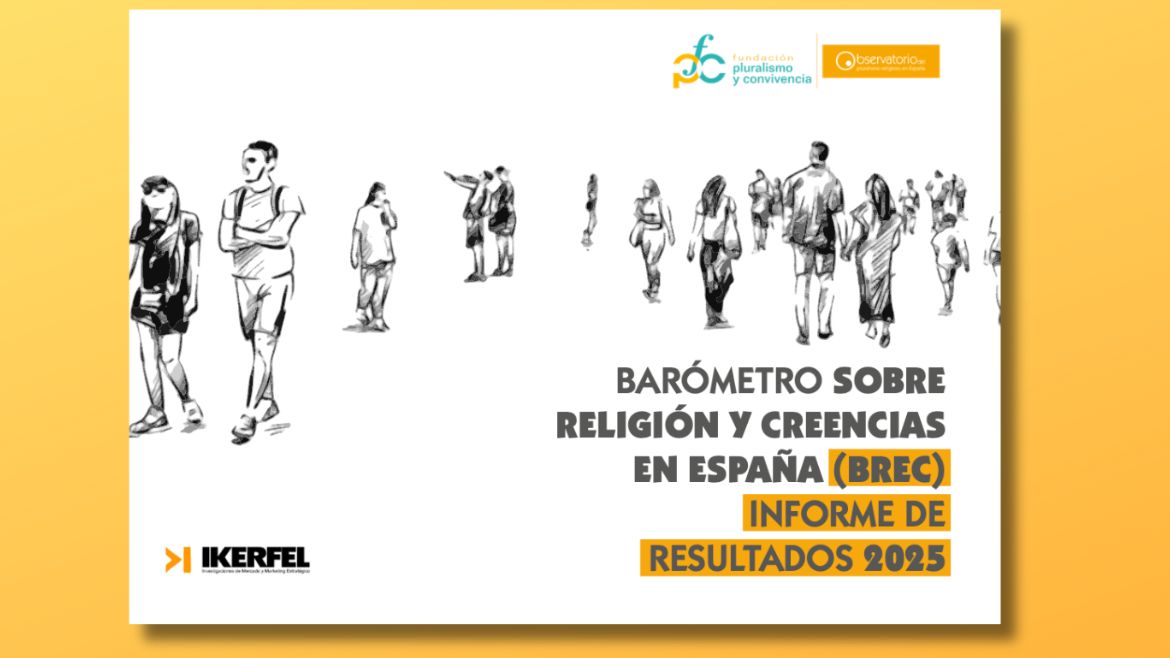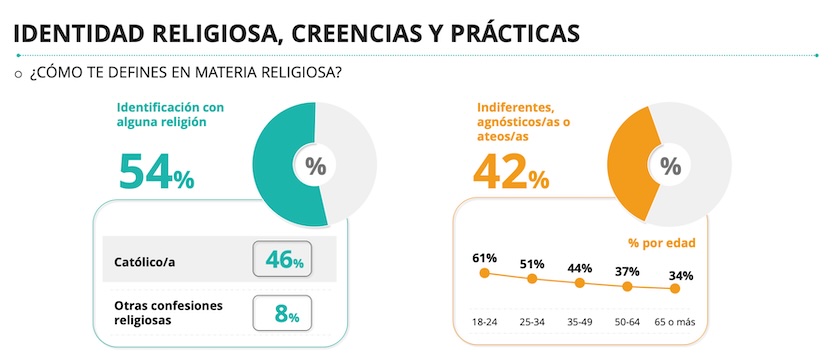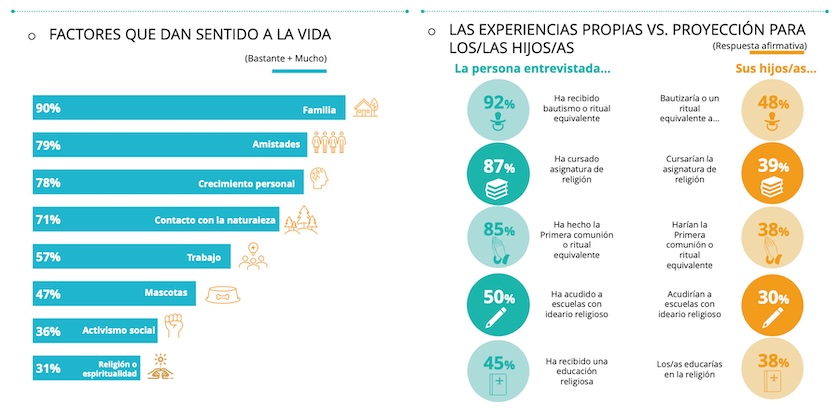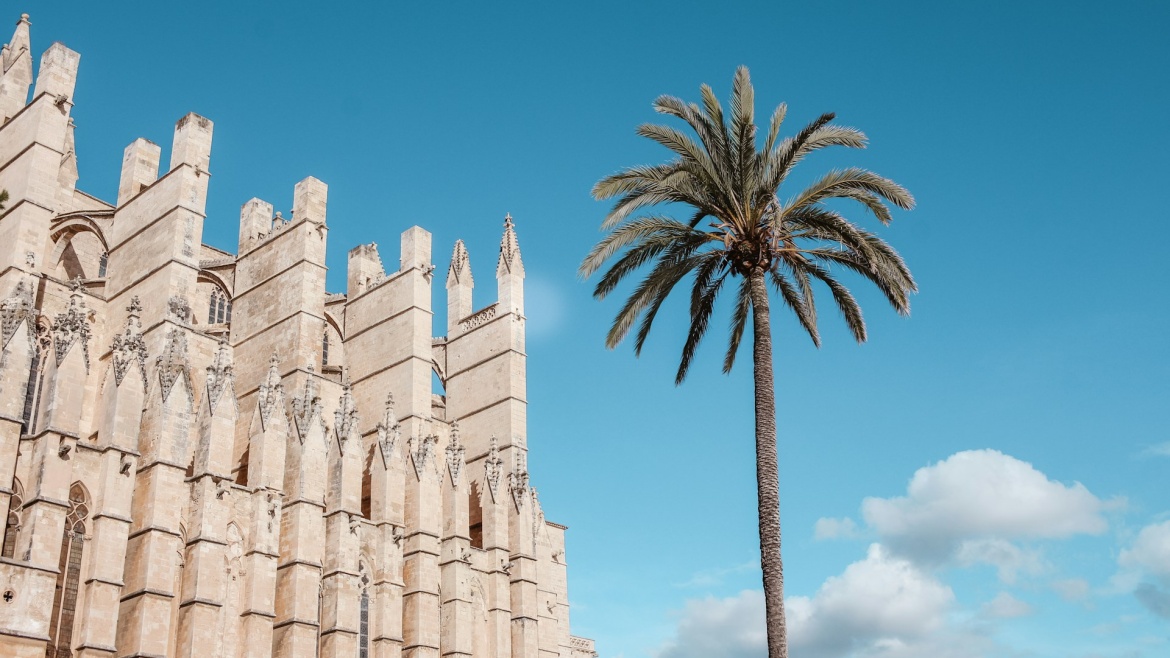Evangelical Focus
Protestante Digital · MADRID · 20 NOVEMBER 2025 · 12:50 CET
Spain’s state foundation for the support of religious minorities, Pluralismo y Convivencia (Pluralism and Coexistence) has published the Barometer on Religion and Beliefs in Spain (BREC 2025), a study that paints a picture of a religious landscape that is rapidly changing.
The main conclusion: the country is divided almost equally between those who consider themselves believers (54%) and those who do not (42%), confirming a trend towards secularisation and diversity of spiritualities.
BREC 2025 shows that Spain is undergoing rapid change: institutional religiosity is weakening, but the search for meaning and alternative spiritual practices are growing. Religious diversity is valued, but tensions, ignorance and discrimination still persist, affecting minorities in particular.

All Evangelical Focus news and opinion, on your WhatsApp.
The report reveals that 42% of the population does not identify with any religion, either as indifferent (17%), agnostic (14%) or atheist (11%). Among those who do define themselves religiously, Catholicism remains the majority (46%), while 8% belong to other denominations.
However, not identifying with a religion does not imply an absence of beliefs. Twenty per cent of those who say they have no religious beliefs consider themselves ‘spiritual people,’ and 35% believe in some kind of spiritual reality, life force or power of nature. Beliefs in energies (64%), the soul (63%), astrology (42%) or reincarnation (37%) show the expansion of deinstitutionalised spiritualities.
This boom is also reflected in everyday practices: meditation (40%), lighting candles or making offerings (37%), yoga (22%) and even tarot readings (10%). Reading the Bible or other religious texts reaches 20%.

Although 54% say they identify with a religion, only 17% maintain regular religious practice. The differences are notable: while 28% of Catholics are practising, among religious minorities, practice reaches 45%.
The study confirms that age is an important factor. 56% of those over 64 consider themselves believers, while among young people aged 18 to 24, belief in a religion stands at 33%.
Young people are the most secularised group, but also the most open to new forms of spirituality (31% believe in a life force; 29% in astrology).
In terms of gender differences, women declare themselves to be believers and engage in spiritual practices in greater proportions than men.
Territorially, Catholicism dominates in Andalusia, Castile-La Mancha, Castile and León, and Navarre, while the ‘no religion’ group is in the majority in the Basque Country, Asturias, and Catalonia.
People born outside Spain show a higher religious identification (54%) than those born in the country (48%).
The report detects a clear decline in the transmission of faith within families and through education. Although 92% say they were baptised, only 38% say they would give their children a religious education. The number of people who had their First Communion as Roman Catholics has fallen from 85% to 38% (who would recommend it to their children).
Something similar occurs with the subject of religion: of the 87% who studied it in school, only 39% would enrol their children now to be taught about it in Religious Education.

Religion ranks last among the factors that give meaning to life (31%).
Today's priorities are: Family (90%), Friendship (79%), Personal growth (78%) and Contact with nature (71%).
The role of pets is striking: 47% say they provide a lot or quite a lot of purpose, a figure that rises to 55% among young people aged 18 to 24.
72% believe that religion has lost importance in Spanish society. Even so, 67% recognise that religious communities contribute positive aspects, although this assessment falls among younger people.
In terms of religious diversity, society views it positively (5.9/10), but reservations remain: 55% would feel uncomfortable if a family member married someone of another religion.
Furthermore, although there is a positive assessment of religious plurality, when asked about specific religions, the perception falls below average (3.7 on average on a scale of 1 to 10). In the case of Evangelicals, the rating would be 4.
Although two out of three believe that religious freedom is exercised in Spain without major obstacles, religious minorities perceive greater difficulties.
48% report problems being buried according to their beliefs, and 42% encounter obstacles in wearing religious symbols or clothing according to their faith.
More worrying is that 12% of the population say they have suffered incidents for religious reasons, a figure that rises to 36% among minorities. Only 10% reported these incidents.
The study finds broad consensus, with 71% believing that secularism guarantees religious freedom. More than 60% believe that introducing religious values into politics is dangerous.
In education, the population is almost evenly divided. 47% reject the teaching of religion in state schools. A similar percentage (53%) would support a non-denominational subject on the history and culture of religions.
On the financing of religions, 54% are in favour of self-financing of religions, without state support. Only 26% support the income tax box for the Roman Catholic Church.
Once again, an in-depth study on religion in Spain does not clarify the percentages of citizens who identify themselves as belonging to minority denominations.
The BREC has found that 8% of those surveyed adhere to a non-majority religion, with estimates suggesting that evangelical Christianity and Islam are the most common. However, none of the data in the study clarifies what percentage of evangelicals there are in Spain today.
Learn all about our #TogetherInThisMission initiative here (English).
Published in: Evangelical Focus – europe – Almost half of Spaniards no longer identify with a religion, says 2025 official report
